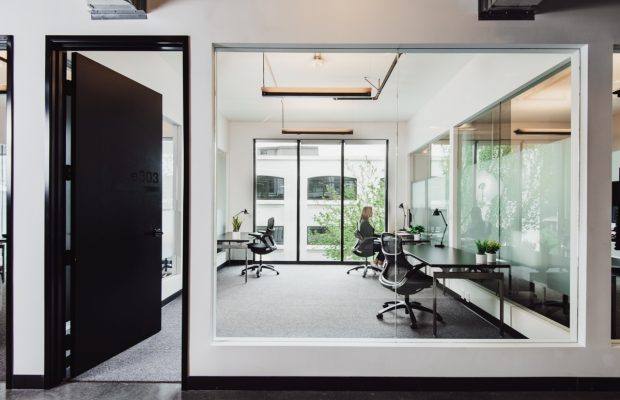What The Experts Think: How Coworking Is Reshaping Companies’ Approach To Office Work
The traditional notion of a workplace is undergoing a profound transformation as companies worldwide embrace coworking as an innovative alternative to the conventional 9-to-5 office setup. This shift is driven by a growing recognition that rigid office hours and locations are no longer the most effective way to foster productivity and engagement. Here at CENTRL, we’ve seen first hand how companies are increasingly warming up to coworking as an alternative to requiring employees to work full-time in a traditional office environment. Read on as we draw insights from economists and thought leaders who advocate for this evolving trend.
An Economic Perspective
From an economic standpoint, the traditional office model is proving to be less cost-effective and less adaptable to the changing nature of work. According to renowned economist Nouriel Roubini, “The workplace of the future will be far more flexible, with remote working increasingly the norm. This shift is set to continue, as the costs and benefits of traditional office space come under ever greater scrutiny.” The overhead costs of maintaining a large office space can be significant, especially in prime urban locations. Coworking spaces, on the other hand, offer companies the opportunity to reduce these costs while providing employees with more diverse and flexible work environments. Economist and author Richard Florida highlights that coworking provides “flexibility in work arrangements, cost savings, and access to diverse networks” that traditional office spaces often lack.
Embracing Flexibility for Enhanced Productivity
One of the primary reasons why companies are gravitating towards coworking is the proven link between flexibility and productivity. A study conducted by economists at Stanford University found that remote work and flexible arrangements can lead to a significant increase in employee performance. Economist Diane Mulcahy supports this notion by stating, “Companies are beginning to see the benefit of allowing employees to work where and when they are most productive, and not just during standard office hours.”
Coworking spaces offer an environment where employees have the freedom to choose their work hours and locations. This autonomy can lead to improved focus and creative thinking, as employees are not confined to the constraints of a traditional office setting. Economist Erik Brynjolfsson points out, “People can work when they are most productive, rather than when a manager dictates.”
Nurturing Innovation
Diversity and collaboration are key drivers of innovation, and coworking spaces are uniquely positioned to promote both. Economist Scott Page emphasizes that diverse teams tend to outperform homogenous ones when it comes to problem-solving and generating innovative ideas. Coworking environments naturally attract individuals from different industries, backgrounds, and skill sets, creating fertile ground for cross-pollination of ideas. Renowned innovation expert Clayton Christensen says, “Innovation comes from people meeting up in the hallways or calling each other at 10:30 at night with a new idea.” Coworking spaces facilitate these serendipitous interactions, allowing professionals to connect and share insights that might not have occurred within the confines of a traditional office.
Reimagining Work-Life Balance
The boundaries between work and personal life have blurred significantly in recent years. Economist Daniel Susskind observes, “The challenge today is not to work harder, but to design our working lives better.” Many companies are realizing that a rigid, office-bound workweek might not align with the evolving needs of their employees. Coworking provides a solution by allowing employees to create a work-life balance that suits them. Economist and author Juliet Schor notes, “The contemporary workforce is demanding greater autonomy in work hours and location. Coworking spaces offer the flexibility that the modern employee craves.”
Conclusion
The embrace of coworking as an alternative to the traditional full-time office model is emblematic of the broader shift towards flexibility, adaptability, and employee-centered work environments. Economists, thought leaders, and even the team here at CENTRL recognize how important it is that companies evolve in order to remain competitive and meet the changing needs of their workforce. If you have any questions about coworking, our workspaces, or anything else we can do to help your business adapt to hybrid work, let us know!


